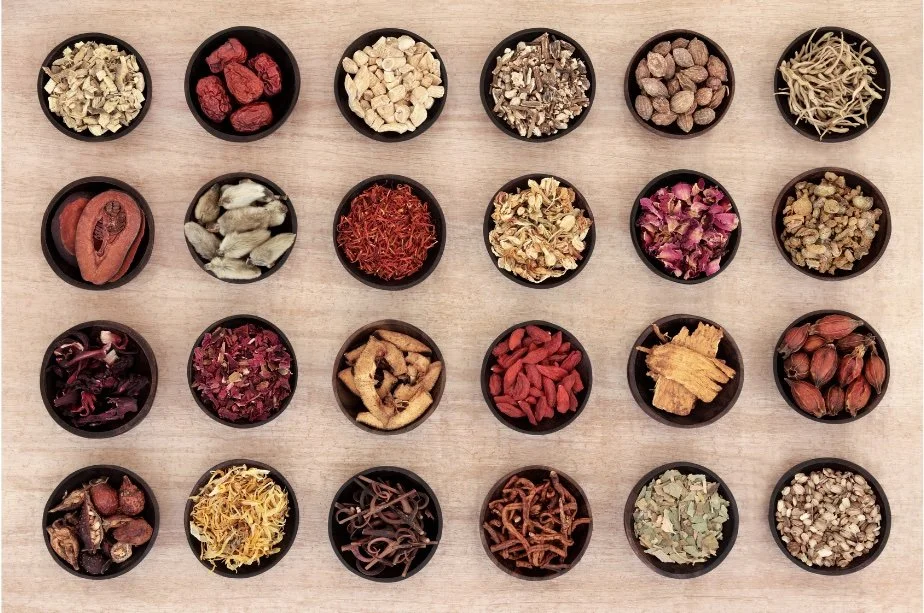
Chinese Medicine for Perimenopause & Menopause in Melbourne
Menopause is a natural biological process that signifies the end of a person’s menstrual cycles. While menopause itself is defined as 12 consecutive months without a period, the transition to this point, or perimenopause, can begin years earlier.
With this transition comes a huge range of physical and emotional symptoms, such as
irregular periods
hot flushes and night sweats
sleep disturbances
brain fog, memory and concentration issues
mood swings, anxiety, depression
joint pain and headaches
hair loss
vaginal dryness
increased urinary frequency
decreased libido
Depending on the individual, these symptoms can range from mild to severe and can significantly impact daily life,
At East Melbourne Acupuncture, we offer holistic Chinese herbal medicine and acupuncture treatments to support people navigating perimenopause and menopause – helping ease symptoms and restore balance
How Chinese Medicine Supports Perimenopause and Menopause
Chinese Medicine – including acupuncture and Chinese herbal medicine – has long been used to support hormonal changes and enhance well-being. Unlike Western medicine which tends to focus on symptom management (such as hormone replacement or medications), Chinese medicine takes a holistic approach, assessing each person individually and tailoring their treatment accordingly. It emphasises not only treating physical symptoms but also fostering emotional well-being.
Acupuncture for perimenopause & menopause
Acupuncture is a core component of Chinese medicine and is thought to regulate the flow of qi or energy throughout the body. When it comes to perimenopause it primarily targets the Kidney, Liver and Heart meridians, which are believed to modulate reproductive and hormonal balance.
In more physiological terms, acupuncture works through a variety of mechanisms, such as:
neurotransmitter secretion and neuromodulation,
lowering cortisol levels (which can increase in menopause) and
anti-inflammatory and anti-oxidant effects.
Studies have shown that it may:
reduce the severity and frequency of hot flushes and nightsweats
improve sleep and
calm anxiety and depression
Read more about the research and benefits of acupuncture for perimenopause/ menopause
Chinese herbal medicine and perimenopause & menopause
Chinese herbal medicine also plays a key role and is believed to have a nourishing and tonifying effect on the body. As with acupuncture, the herbs focus primarily on the Liver and Kidney systems, which in Chinese medicine are considered crucial for regulating hormones and reproductive health.
Some commonly used herbs for menopause include:
Angelica Sinensis (Dang Gui): Known as the “female ginseng,” it is used to balance hormones and relieve symptoms like hot flushes and night sweats.
Black Cohosh (Sheng Ma): Traditionally used to reduce hot flushes and ease mood swings.
Ginseng (Ren Shen): Thought to boost energy and combat fatigue.
Schisandra (Wu Wie Zi): Often used to improve libido, balance mood, and support adrenal function during stress.
Herbal formulas are generally customized to the individual’s unique constitution and symptoms. At East Melbourne Acupuncture we advise consulting a qualified Chinese Medicine practitioner before starting any herbal remedies.
Dietary Therapy and perimenopause & menopause
In Chinese medicine, food is viewed as medicine, and dietary changes can play a pivotal role in managing menopause symptoms. For example, foods that nourish the kidneys and balance the Yin (the cooling, nourishing aspect of the body) are often recommended.
Common dietary recommendations for menopause include:
Soy-based foods: These contain phytoestrogens that mimic estrogen in the body, potentially helping with hot flushes and mood swings.
Leafy greens and vegetables: Help nourish the liver and kidneys, which are central to hormonal balance.
Whole grains: Promote energy and stabilize blood sugar, which can prevent mood swings.
Foods rich in omega-3 fatty acids: Such as flax seeds, walnuts, and fatty fish, which help support brain health and reduce inflammation.
Embrace Menopause Positively
The transition through peri-menopause to post-menopause should be considered a positive time in a person’s life, enjoying the wisdom gained from the past and embracing the changes of the future. Incorporating Chinese medicine practices may provide a natural and effective option to manage symptoms and help ease this transition.
Book Your Menopause Support Consultation Today
To explore a more natural path through perimenopause or menopause book an appointment or contact us today.

